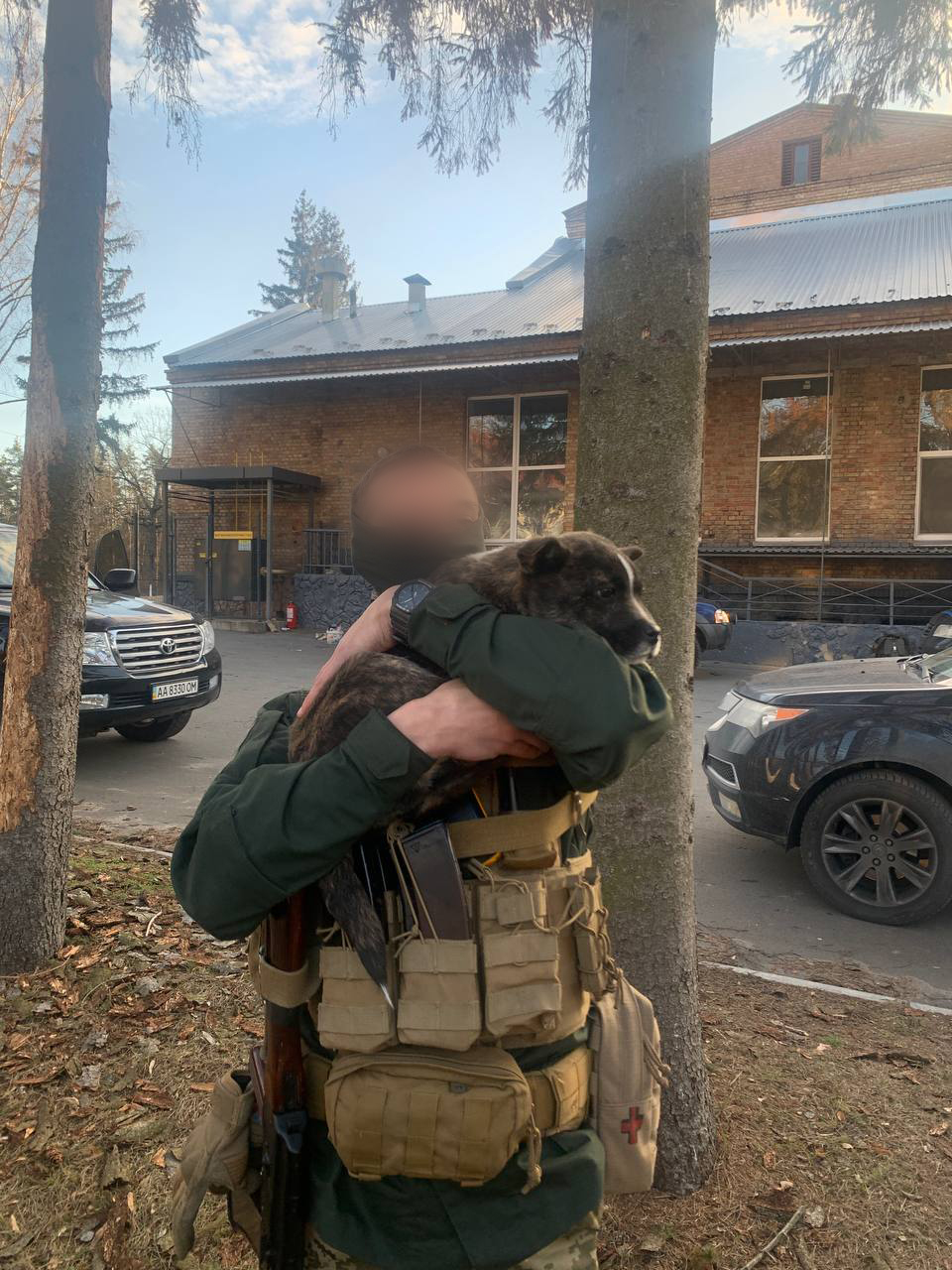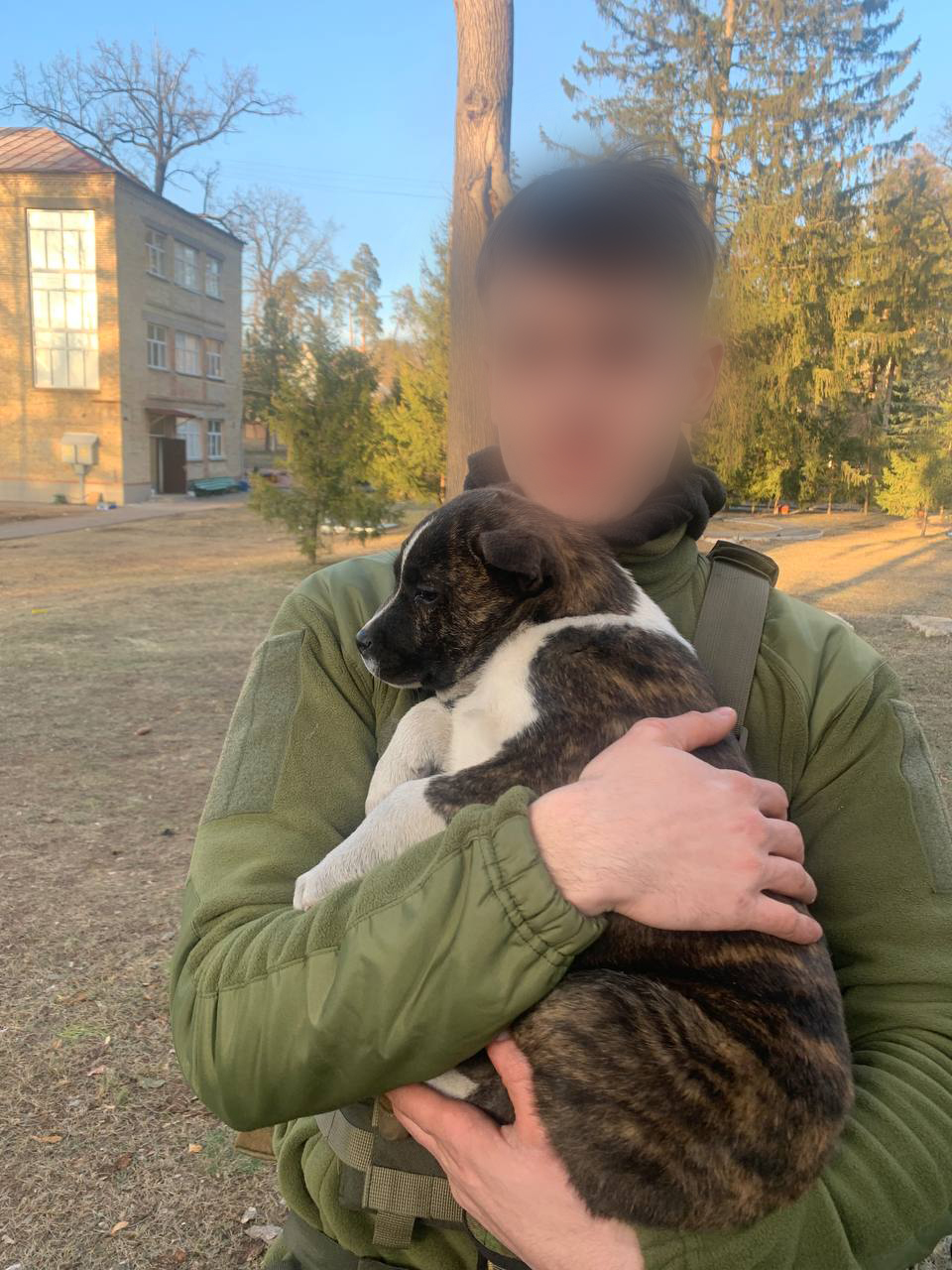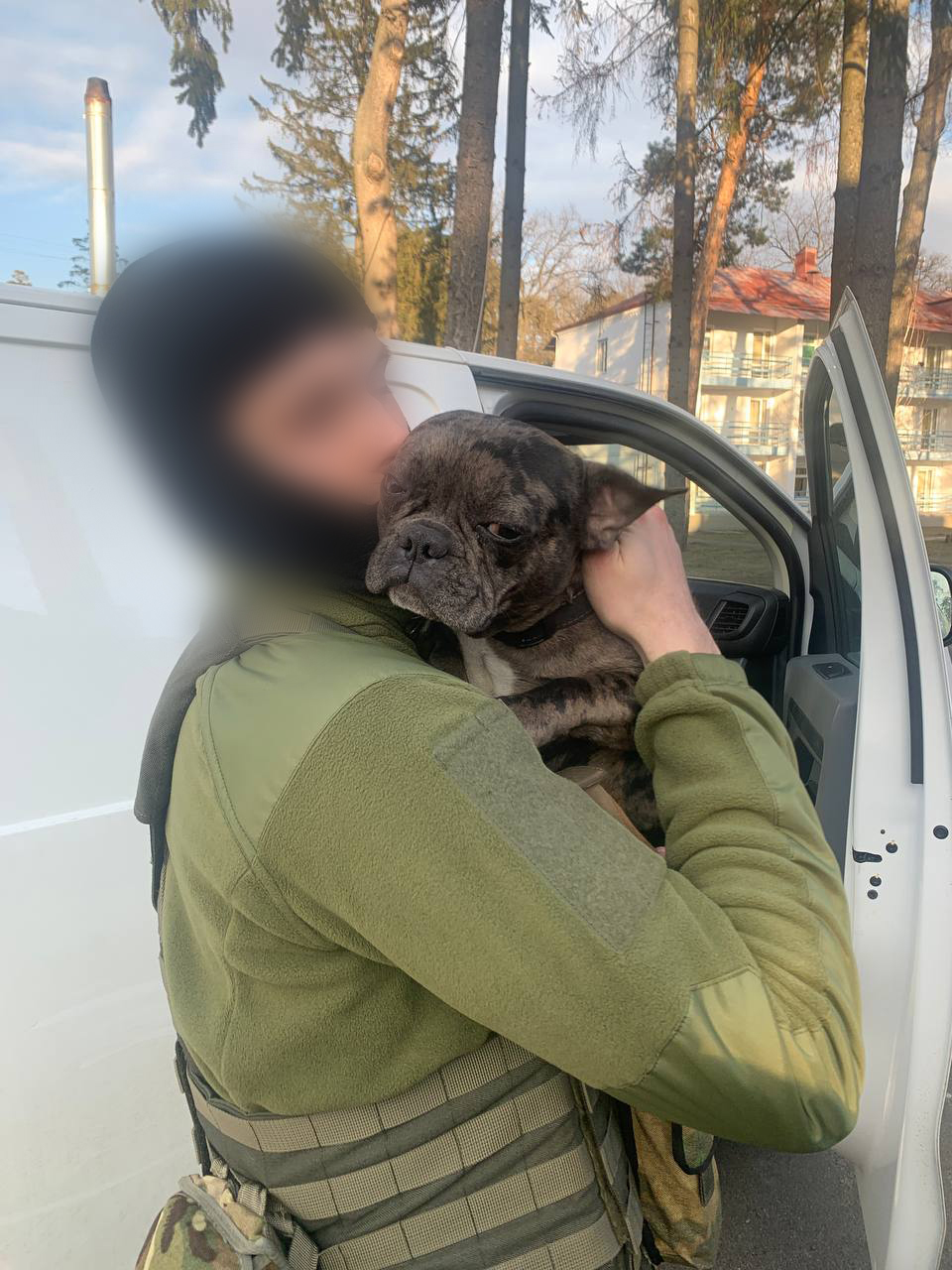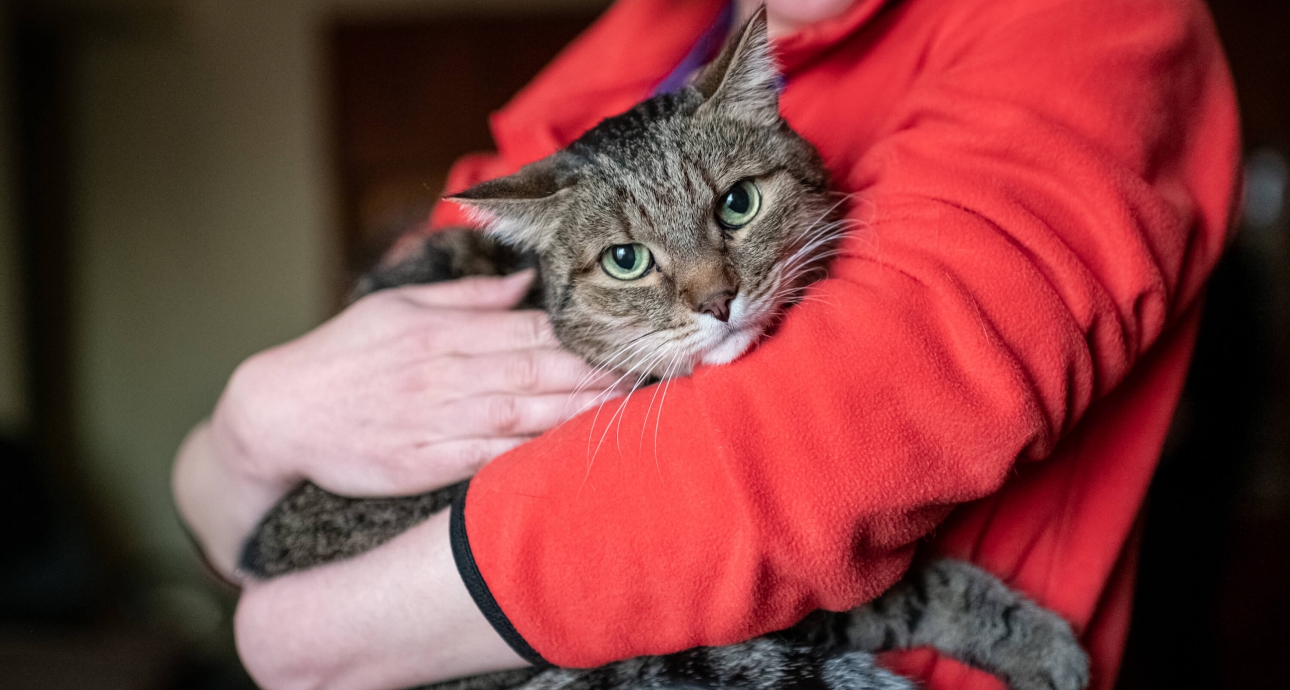
“Never Get a Pet Again, You Don’t Deserve Them”: How Volunteers Save Animals During the War
When fleeing their cities, Ukrainians don’t always take pets with them. Hundreds of cats and dogs were left behind in apartments, on railway stations, or even on the streets. Luckily, there are volunteers, who can retrieve animals from closed apartments or battlefields. They told Bird in Flight, how rescue patrols work and how long can cats and dogs survive on their own.
Mariia Yerokhina worked as an assistant film director. After the Russian invasion, she lost her job and started volunteering at Zoopatrol. This animal rescue organization was established in Kyiv on March 3. One of its co-founders, Dmytro Revniuk, asked Mariia to help. Now, she spends her days and nights working as a volunteer. Zoopatrol has saved more than 100 abandoned animals in two weeks of the war. The team usually receives around 30 requests per day. Apart from retrieving animals from closed apartments, volunteers are asked to deliver pet food or help elderly people to transport their pets. Zoopatrol volunteers buy pet food using money from donors and charity organizations. When it comes to rescue tools and gas, they pay for it out-of-pocket. So far, they’ve spent around UAH 5000. The team discusses the result of their work at daily Zoom calls.
If animals were abandoned in active war zones or in the apartments with armored doors, Zoopatrol volunteers could do nothing to help. In other cases, they do their best. The team has a “diplomat” on board — a person who talks to neighbors and explains that volunteers won’t rob their houses. “Diplomats” also negotiate with landlords, who refuse to give permission to break down the door. They describe in detail torturous starvation that awaits for abandoned pets. If it doesn’t convince landlords, volunteers have no choice, but to leave the place.
The team has a “diplomat” on board — a person who talks to neighbors and explains that volunteers won’t rob their houses.
The longest rescue mission lasted for two weeks. A cat’s owner reached out to volunteers in the beginning of March. Her neighbors didn’t allow breaking the wall. Volunteers and local territorial defense representatives had to feed the cat through a tiny peephole in the door. As soon as postal services became available, the owner sent her apartment keys to volunteers. The package arrived 9 days later. Together with local territorial defense representatives, neighbors and rescuers, volunteers opened the door and got into the apartment. They filmed the operation on two mobile phones. The cat survived, but it was weak with starvation and dehydration. According to the rescuers, the cat kept using her litter tray, did no damage to the flat and missed her owner.
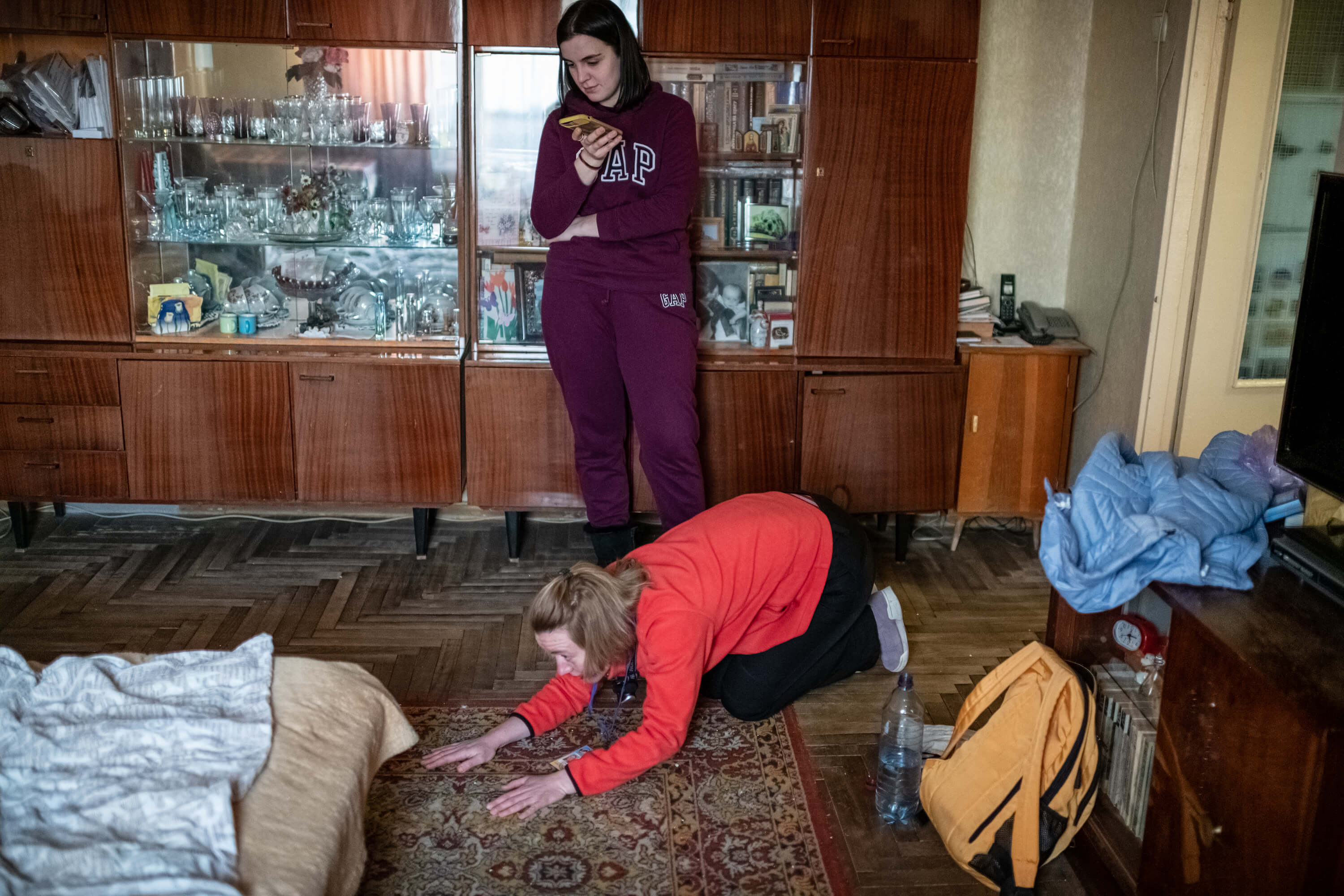
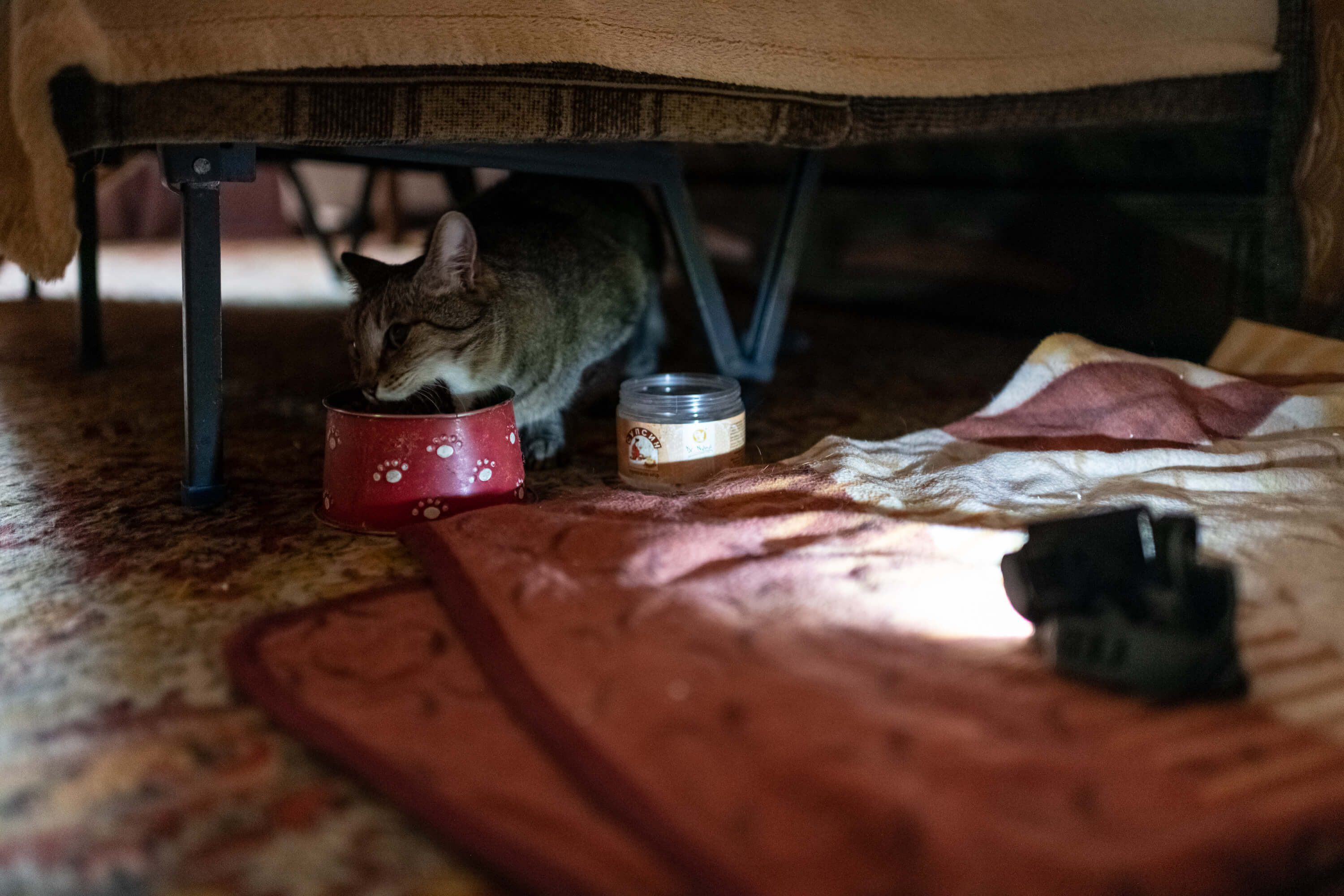
Most of the time, volunteers receive calls from pet owners, who can’t go back home. Animals can survive with no food and water for less than a week. If animals have something to eat and drink, they can probably live for 10-14 days. If owners leave their pets with a sufficient amount of food and a couple of buckets of water, they can survive for 1-1.5 months.
Together with the Kyiv Animal Rescue Group, Vladyslav Antonov has been saving animals for 8 years. According to Vladyslav, the fastest and most efficient way to save a pet is to break down the door with a crowbar. In most cases, the door can still be shut down afterward. Rescued cats and dogs find shelter with volunteers. If there is no way to break down the door, rescuers drill a hole in the wall or ask neighbors to feed the animals through peepholes or windows. Usually, animals don’t escape through holes in the walls, they prefer to stay at home.
Both Mariia and Vladyslav claim that most frequently people leave cats behind. When panic starts, cats tend to hide, and owners can simply forget about them in a rush. But cats can live on their own, if they have enough food and water. For dogs, it’s much harder to be alone. They can’t divide their food into portions; instead, they eat everything they can see at once. Besides, these animals have strong bonds with their owners. “At first, dogs howl loudly and desperately so that people can hear them, — says Mariia, — Then they get depressed. They go quiet. People might think that the dog has died, and it’s too late to save it. But usually the dog just lies there motionless and hopeless.” Mariia says that she can’t forget the moment she rescued a labrador puppy left behind by his owners.
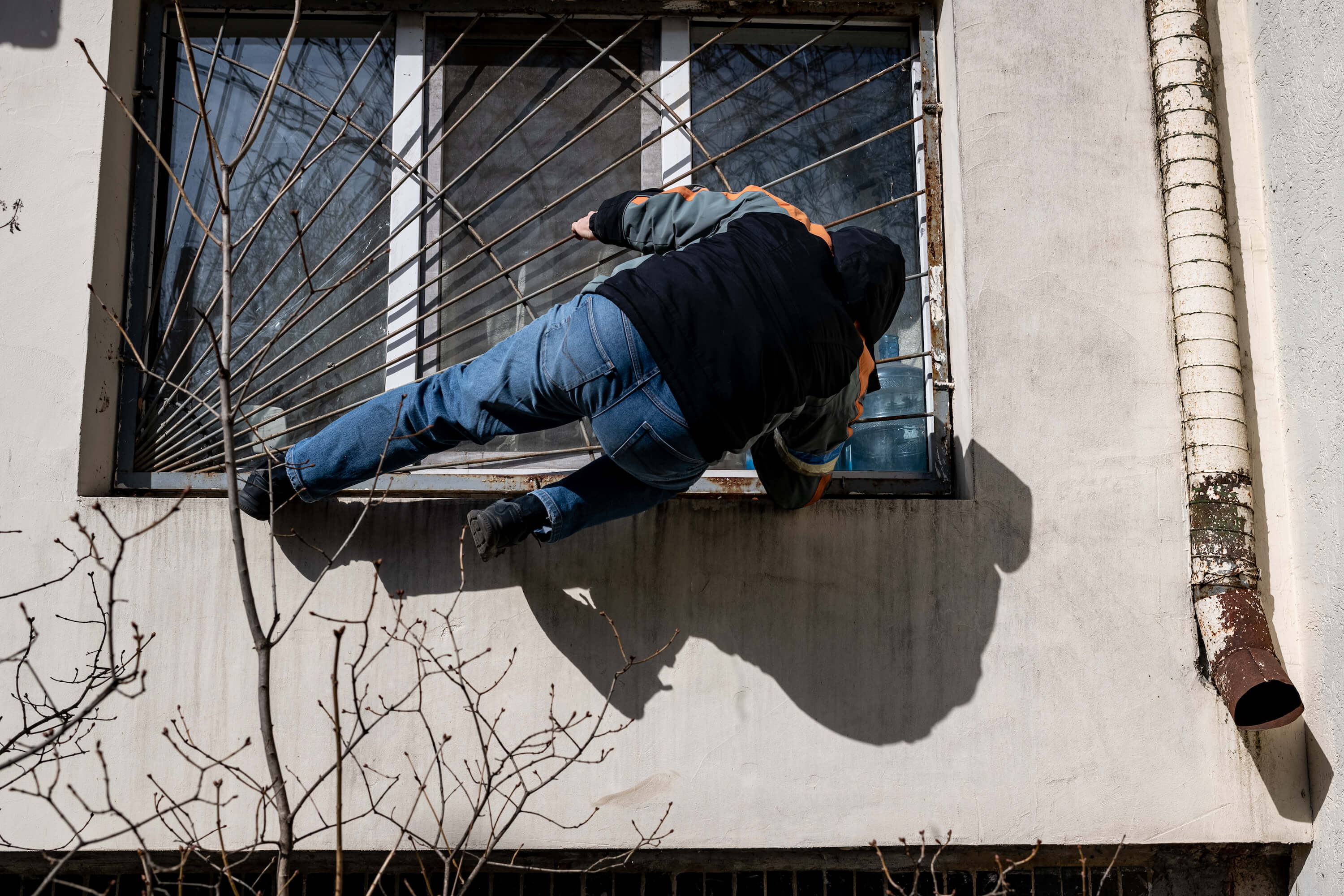
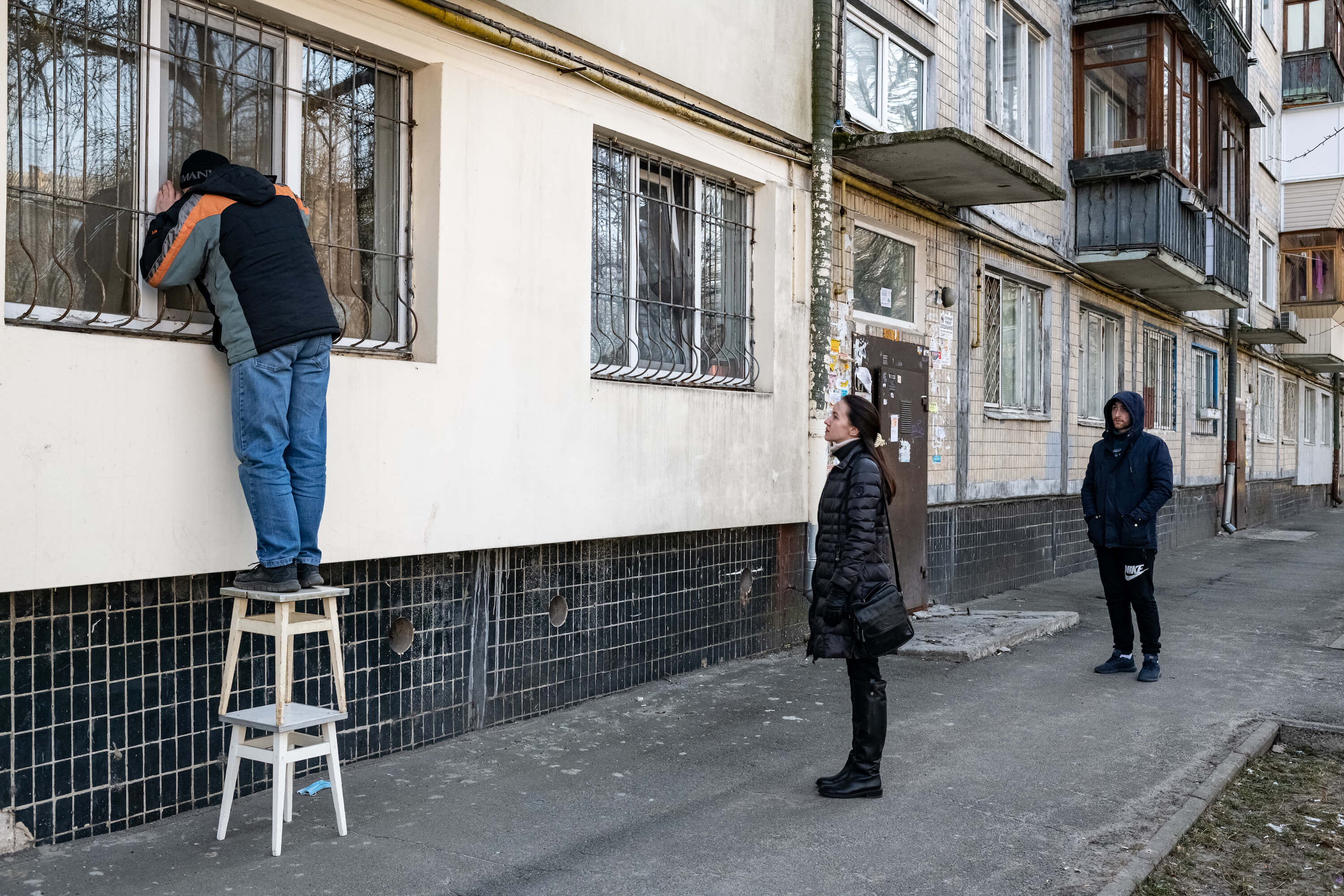
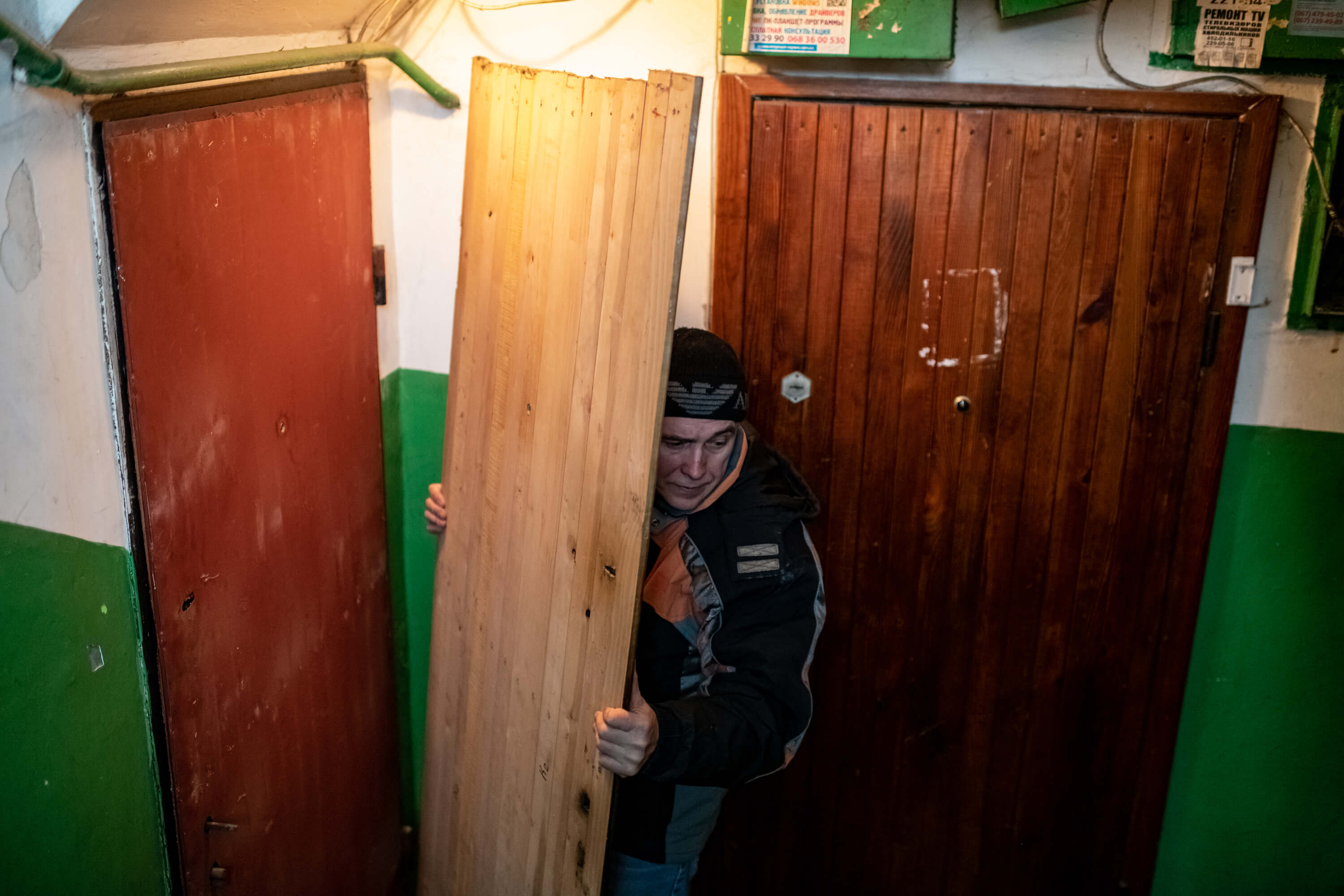
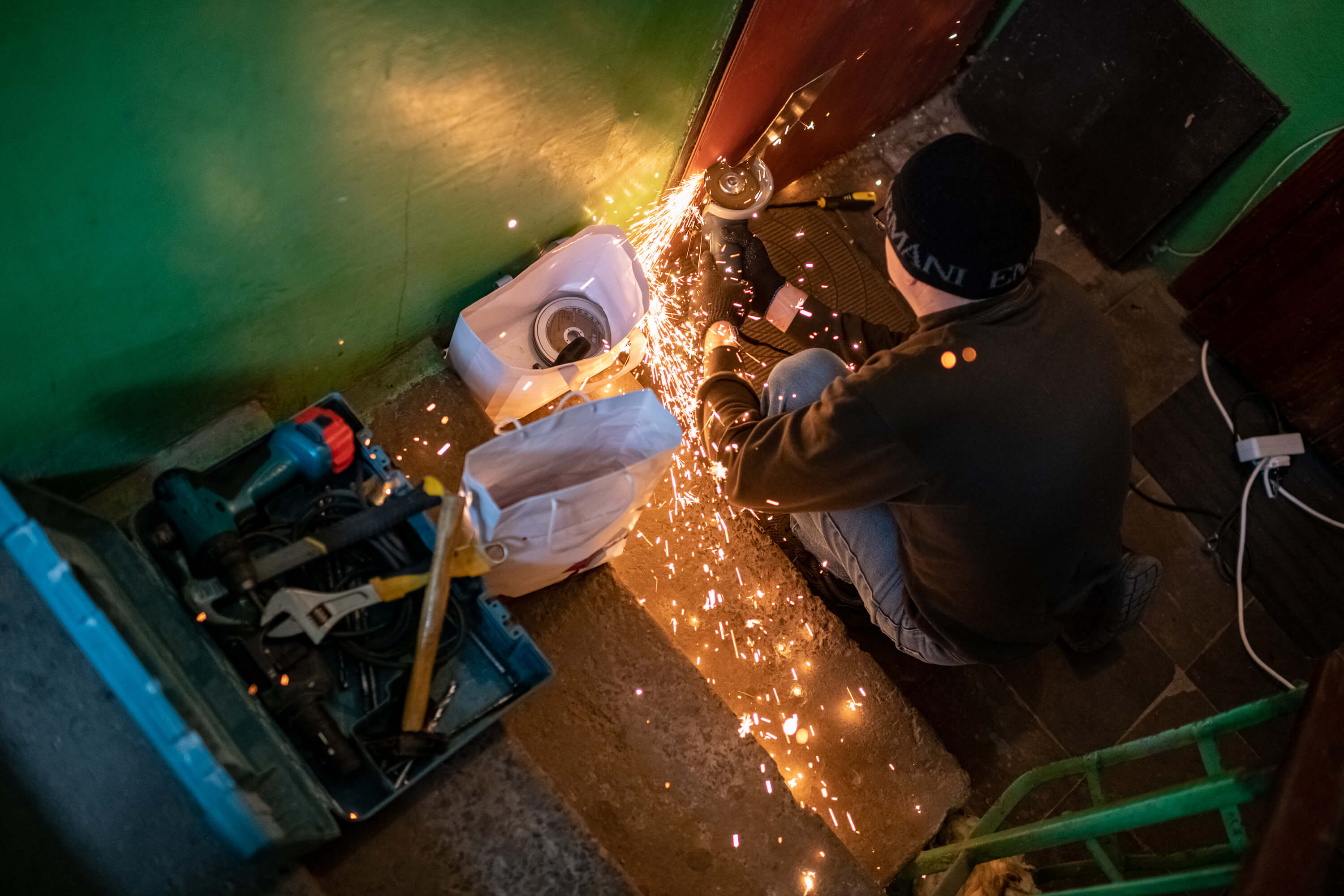
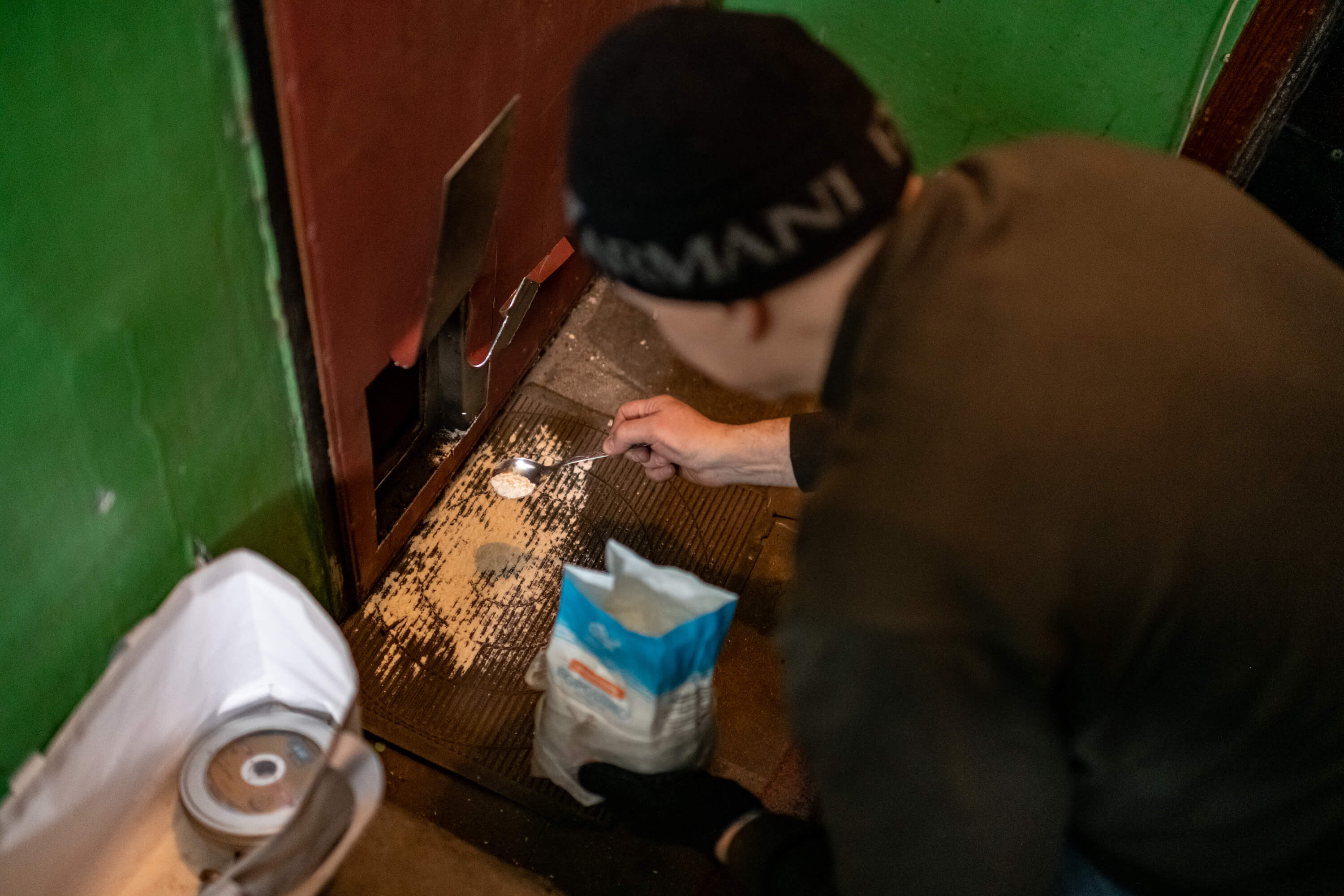
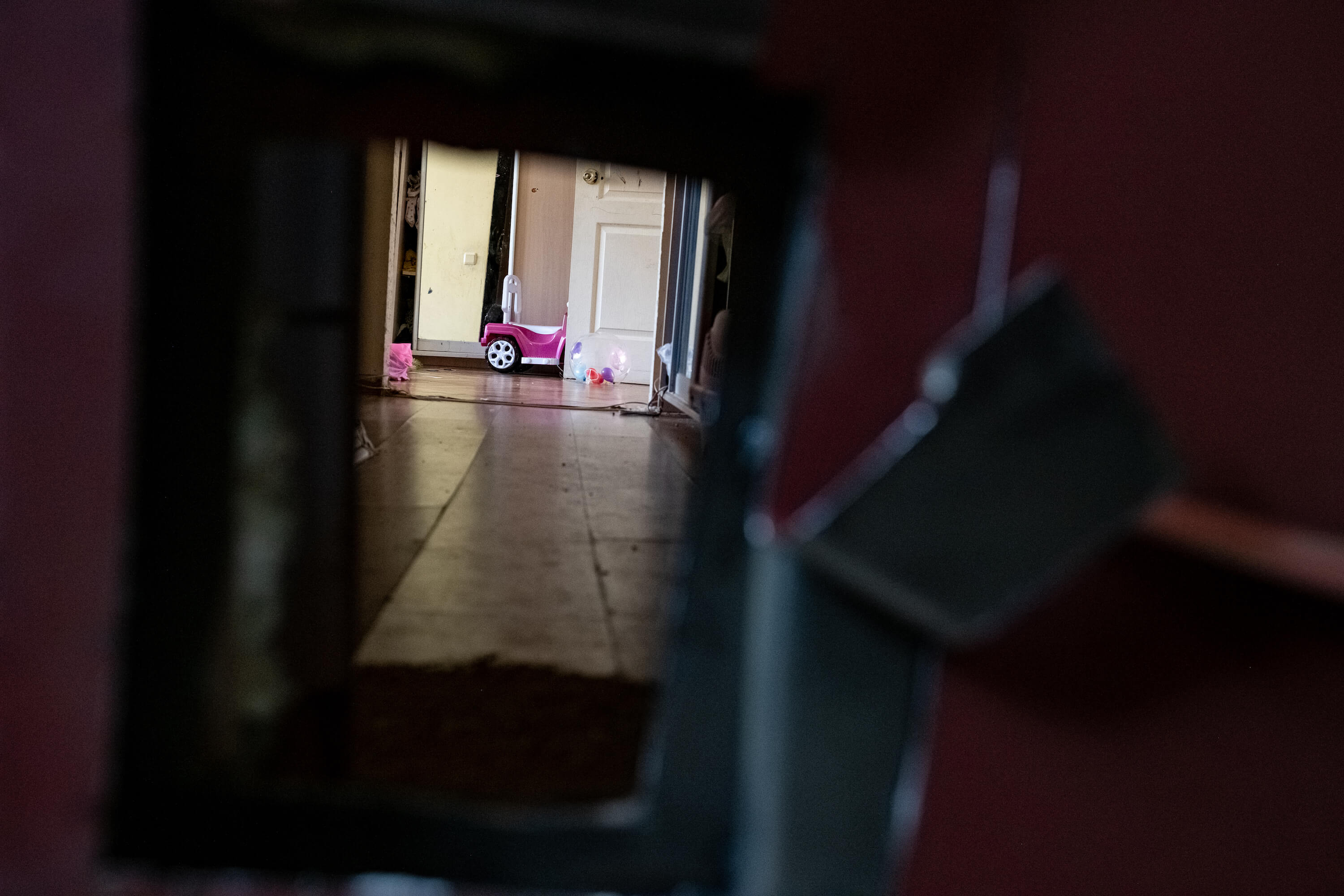
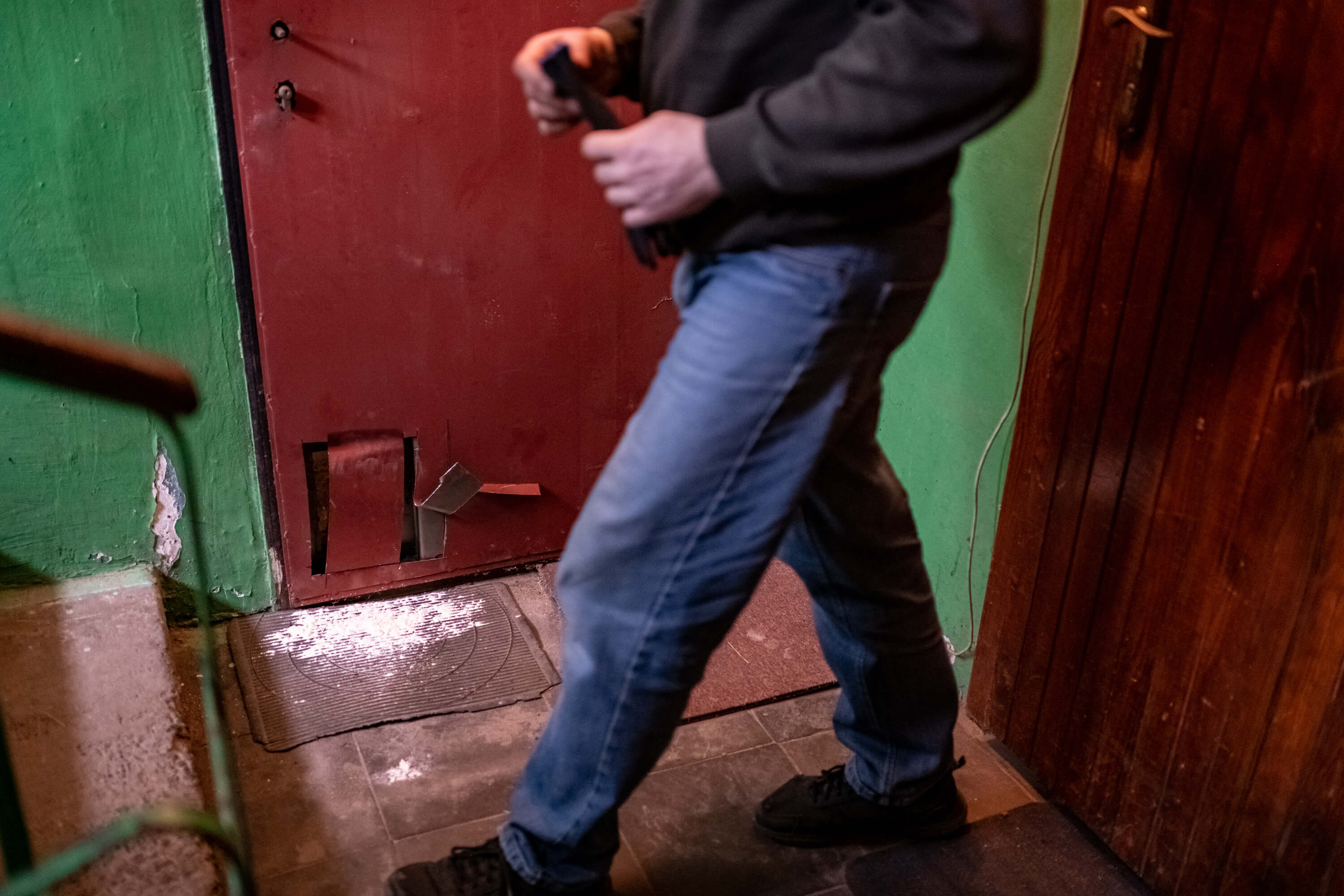
Exhausted animals are transferred to veterinary clinics, like “The Red Cat” in Kyiv. Animal shelters are currently living through tough times. The vast majority of shelters are located in suburbs, in active war zones.
A week ago, a lot of Ukrainian and international media published a photo of Anastasiia Tykhaya, a volunteer who evacuates disbaled animals. Anastasiia is a member of the Kyiv charity group “Pliushka”. “We decided that Anastasiia should try and move at least 100 meters a day to the evacuation point, — says Snizhana, another volunteer at “Pliushka”, — On the way from Irpin’ to Kyiv she lost four dogs, but we know where they are and we will do our best to bring them back.” According to Snizhana, animals from the shelters on temporary occupied territories are still alive, but they run out of food.
It’s not cruelty that makes owners abandon their pets, but a naive belief that they will be able to come back home in a couple of days. Some owners were abroad when the war started, and had no chance of getting back to their pets. Volunteers are ready to help save the pets, but they have limited capacity to keep them on a long-term basis. “Owners plan to come back home when the war is over. Meanwhile, they want volunteers to risk their lives, saving pets from the war zones, — says Snizhana, — That’s not going to happen. We can only provide a temporary shelter for their pets”. She posted an emotional message on “Pliushka” Facebook page on March 15, accusing the owners of selfishness. “We wake up to explosions, and we don’t flee our cities until we have saved all the pets. We are staying here. And you ran away, and didn’t even bother to take a small dog or cat with you. Never get a pet again, you don’t deserve them!”
Poland is ready to host the Ukrainian pets, but it’s a long and complicated process. One of the main obstacles is a lack of pet carriers — in the last three weeks “Pliushka” spent more than UAH 50, 000 on them. Sometimes volunteers are forced to pay a three times higher price for a carrier. Besides, transporting animals is not easier than transporting people. Volunteers need to find a car, plan a safe route, change cars on the border if necessary. More to that, shelters in Poland need to be booked in advance to host evacuated animals.
Support volunteers or ask for their help following these links:
Zoopatrol on Facebook
Kyiv Animal Rescue Group patreon, their telegram channel, and volunteers card numbers
“Pliushka” on Facebook
“Revansh” squad telegram channel (they rescue animals, when off-duty)
All photos, if not credited otherwise: Dima Kornilov
New and best
